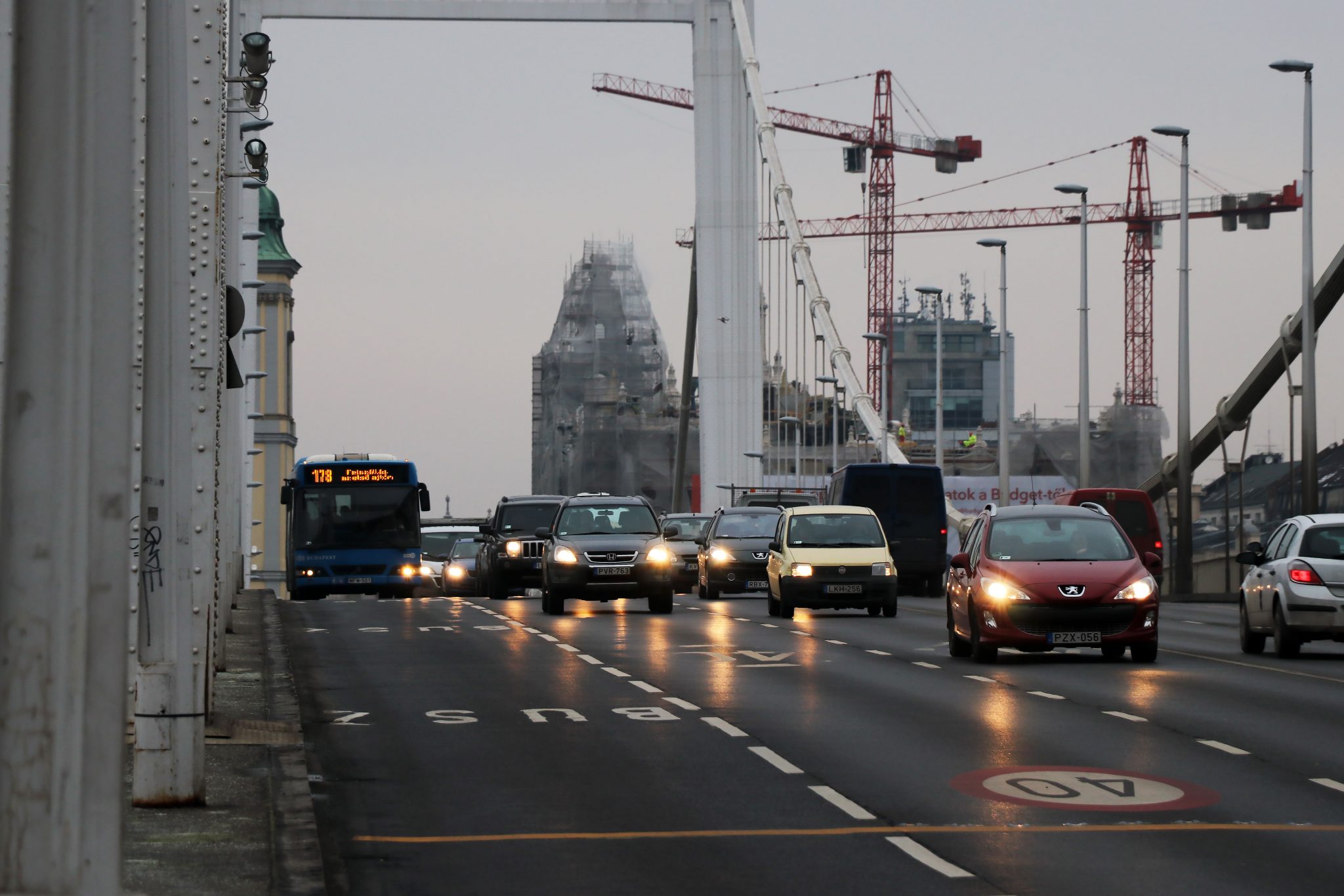Budapest – This will be the situation if diesel cars will be banned!
If the Municipal Assembly decides to ban diesel cars in certain zones, that would affect 30% of Budapest’s drivers. Based on last year’s registrations in Pest county, numerically, it would mean 373,000 diesel cars out of the total 1.2 million. According to the expert, diesel-powered vehicles should not be chosen as the ’scapegoat’ of environmental pollution. Neither campaigning against diesel cars, nor introducing congestion charge would resolve the situation. One solution might be the development of the P&R system, reported Világgazdaság.
Based on last year’s results, the regulation would concern 373,000 diesel cars in the region of Budapest. Furthermore, trend changes should also be taken into consideration, as the prohibition is planned to be realised within the next five years. Despite the fact that the usage of diesel-powered vehicles shows a slightly growing tendency, petrol cars are still dominating the roads by 59%. Accordingly, it would be a mistake to blame only diesel-powered cars for environmental pollution.
- Congestion fee is included in new Budapest Mobility Plan
- Budapest – New traffic regulations are planned to reduce air pollution
According to Róbert Szabó, the chief editor of Autó-Motor, the introduction of a congestion fee in Budapest would be hypocritical.
The expert thinks that the best solution for traffic control and the reduction of air pollution is the development of the P+R system. He also pointed out that the increasing number of green cars can also aggravate the problem in the long run.
“The energy of electric vehicles needs to be produced somewhere. It is only one part of the process that local emission is zero, but at the end of the charging cables, coal power plants in the Ruhr region emit huge amounts of smoke. A diesel car produces 100 units of contaminant due to battery production, while this amount is 122 in the case of hybrid vehicles,” they emphasised.
Péter Erdélyi, the Executive Chairman of the Hungarian Vehicle Importers Association, revealed that 150,000 new vehicles are purchased in Hungary on a yearly basis; congestion fees will not have any impact on the quantity and price. According to the expert, a congestion fee will not bring environmental benefits, as it will certainly contain many concessions. For example, admission will be allowed to those drivers who live or work in the region. Therefore, he thinks congestion fees would be more of a new tax rather than real environmental action in the city centre. However, it would be worth it to clarify what kind of cars should be restricted, as the newest diesels are among the most environmentally-friendly vehicles. In his view, the biggest problem is that there is a mass flow of old diesel cars coming into the country. As Infostart reports, before the crisis, 70-75% of imported cars were six years old, while now, this percentage concerns cars which are older than 12 years.
According to Erdélyi, something should be changed about this phenomenon – importation of old cars should be stopped, or people should be encouraged to purchase newer ones.
Attila Fojt, the President of the Hungarian National Association of Automobile Traders, said that roughly 800,000 used cars change hands each year; this volume and their prices would not be affected by the introduction of a congestion fee. However, their composition would probably change. According to him, the introduction of a congestion fee would affect the used car market only a few years later; however, old diesel buses should also be replaced in Budapest.
Source: vg.hu; infostart.hu
please make a donation here
Hot news
What happened today in Hungary? — 26 April, 2024
Unemployment stops rising in Hungary
Foreign workers at Wolt Hungary: courier and restaurant manager chime in – and they are not happy
Hungarian FM Szijjártó: We won two battles in Brussels
Bizarre developments: Orbán cabinet now targets rainbow-coloured items!
Hungarian defence minister: Most important thing is peace




